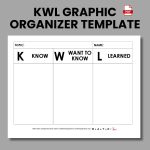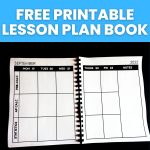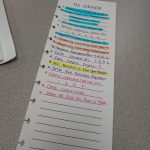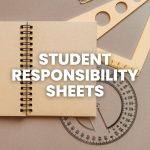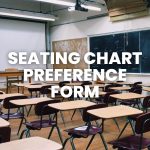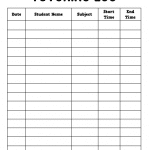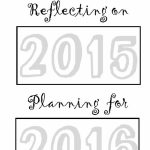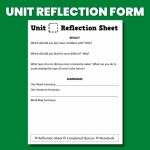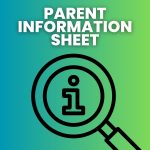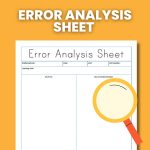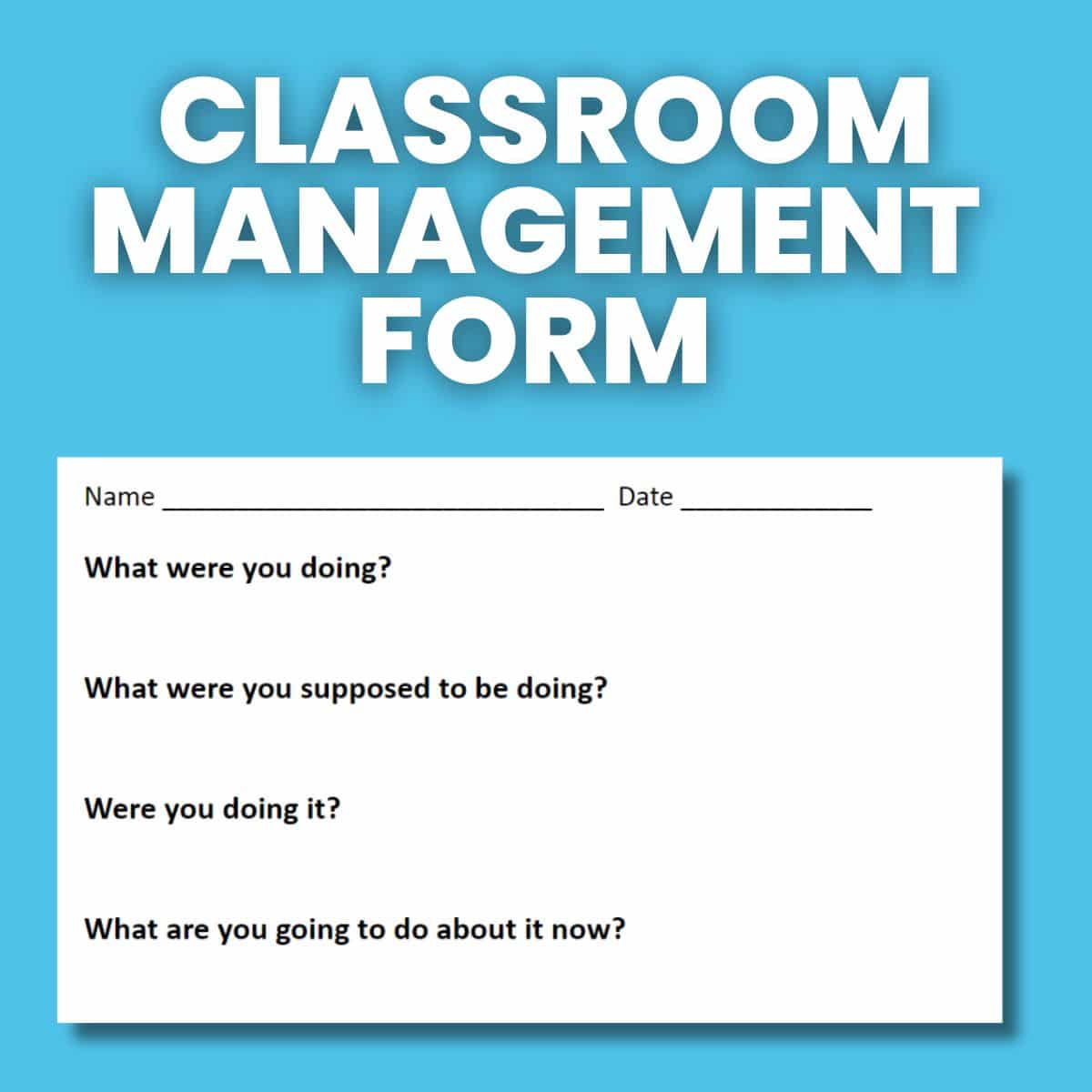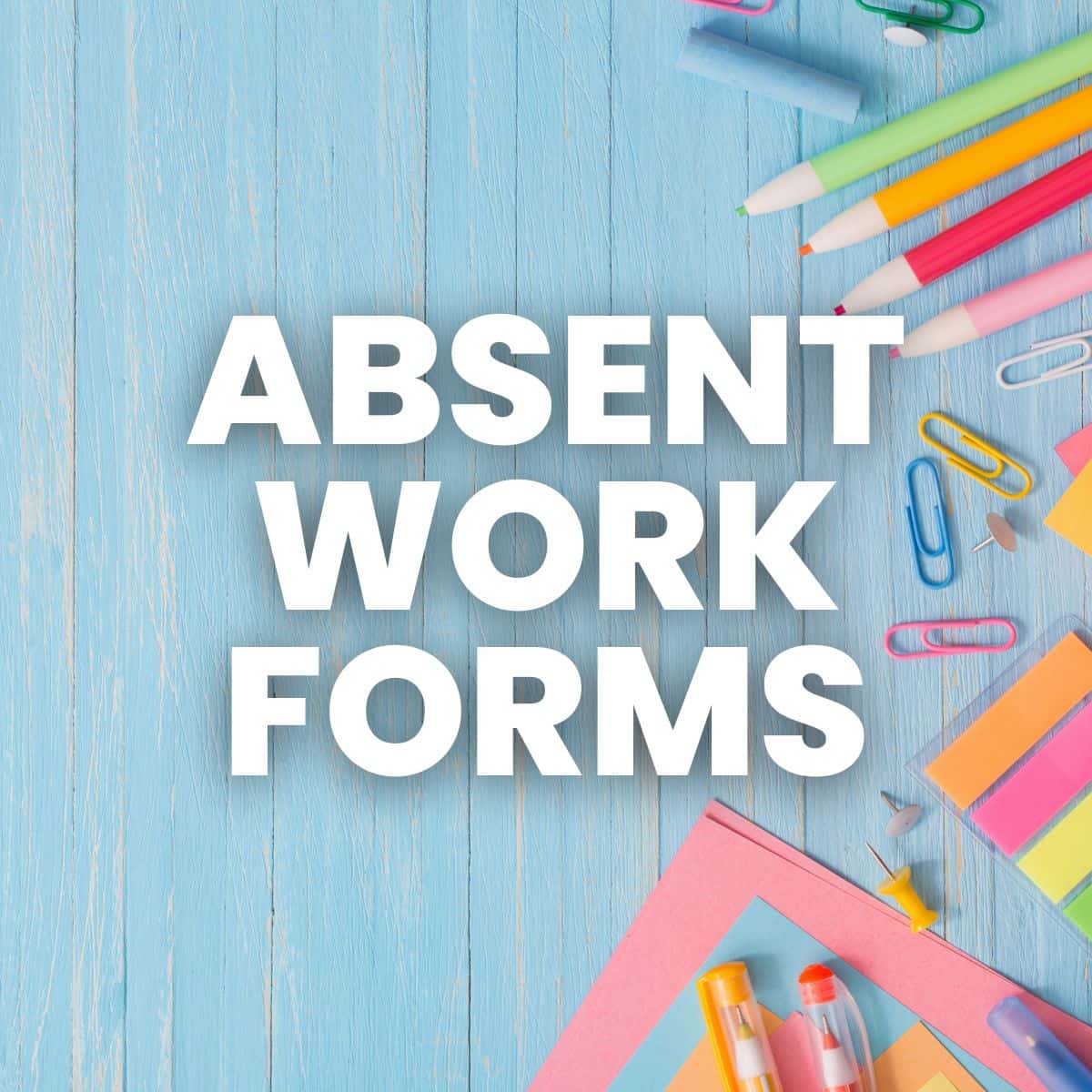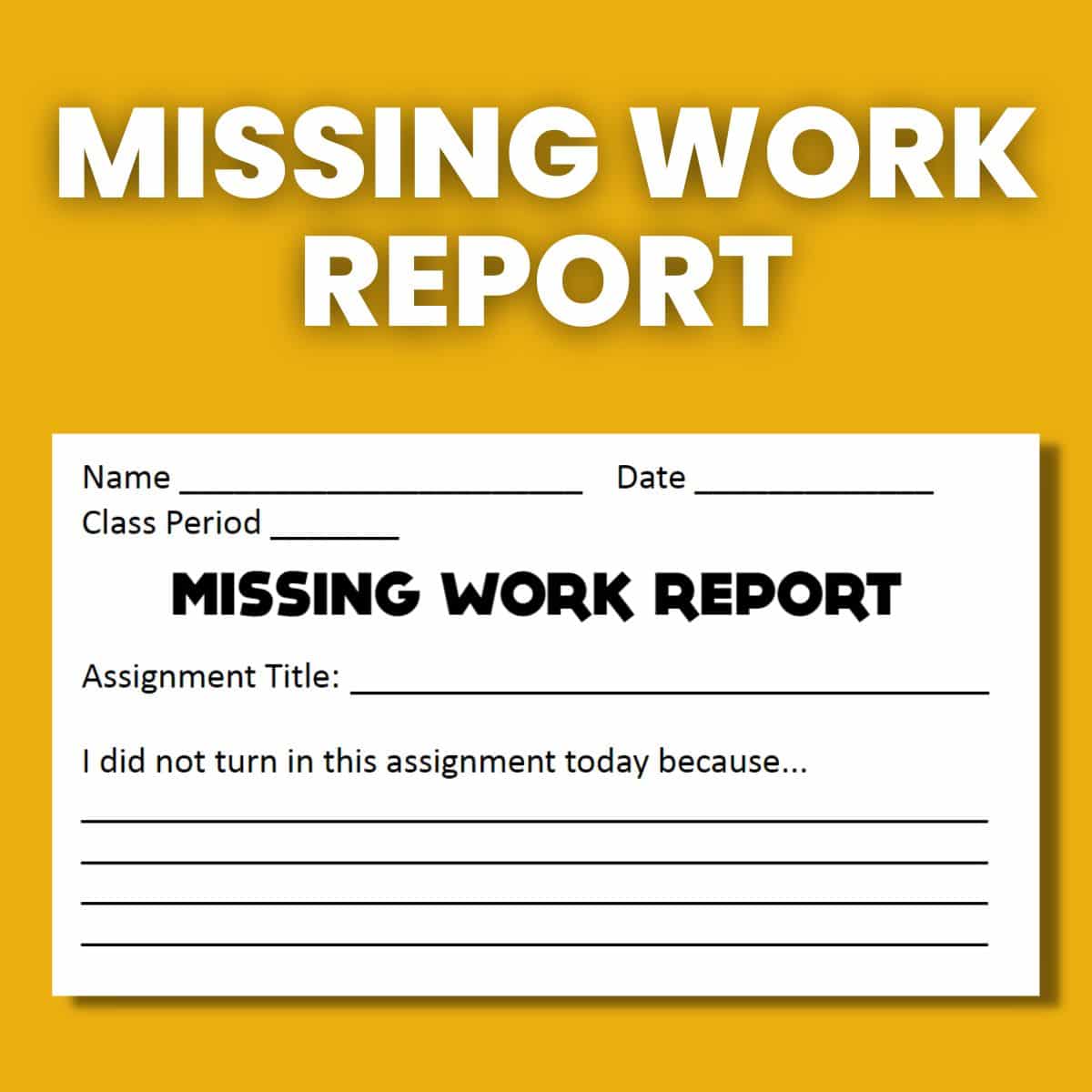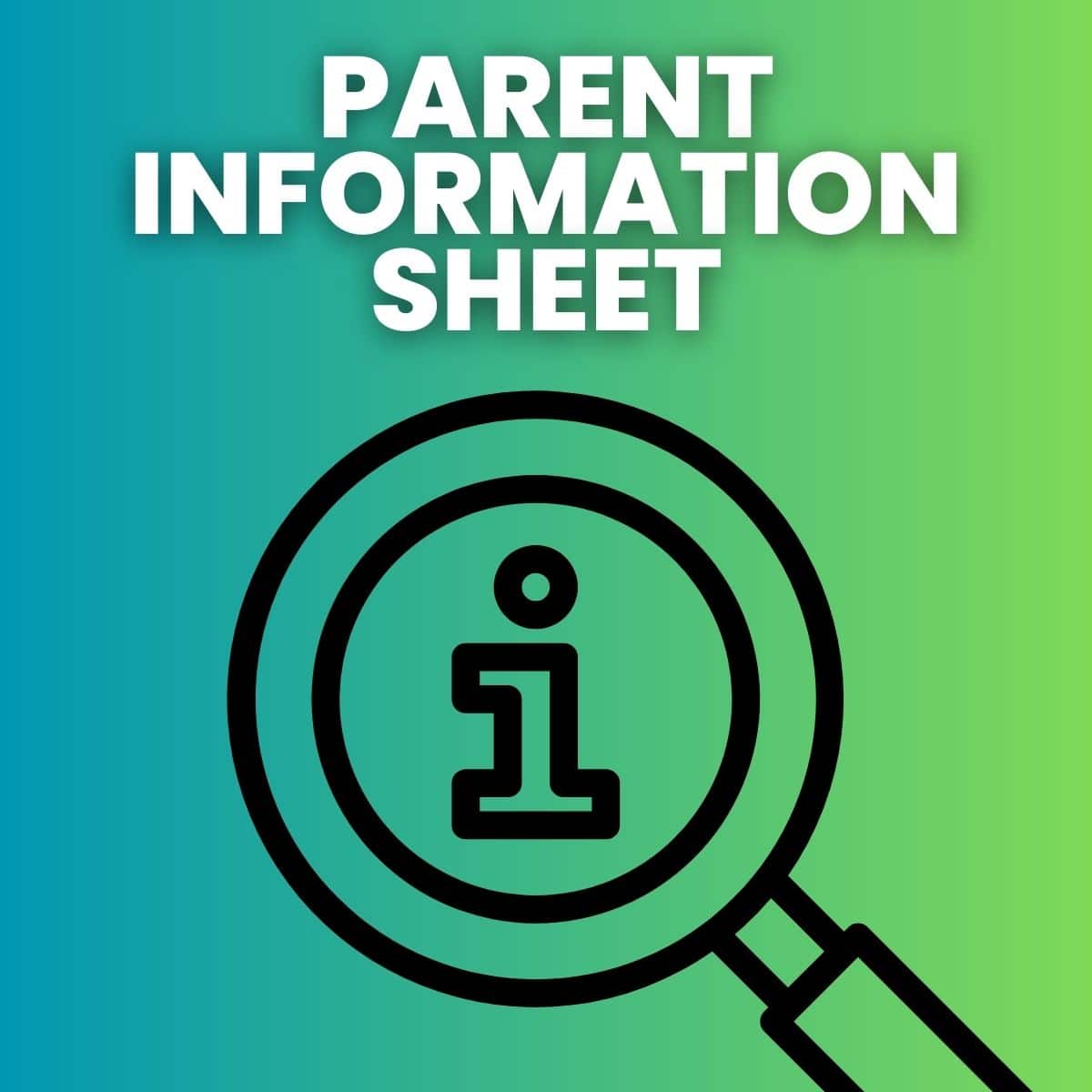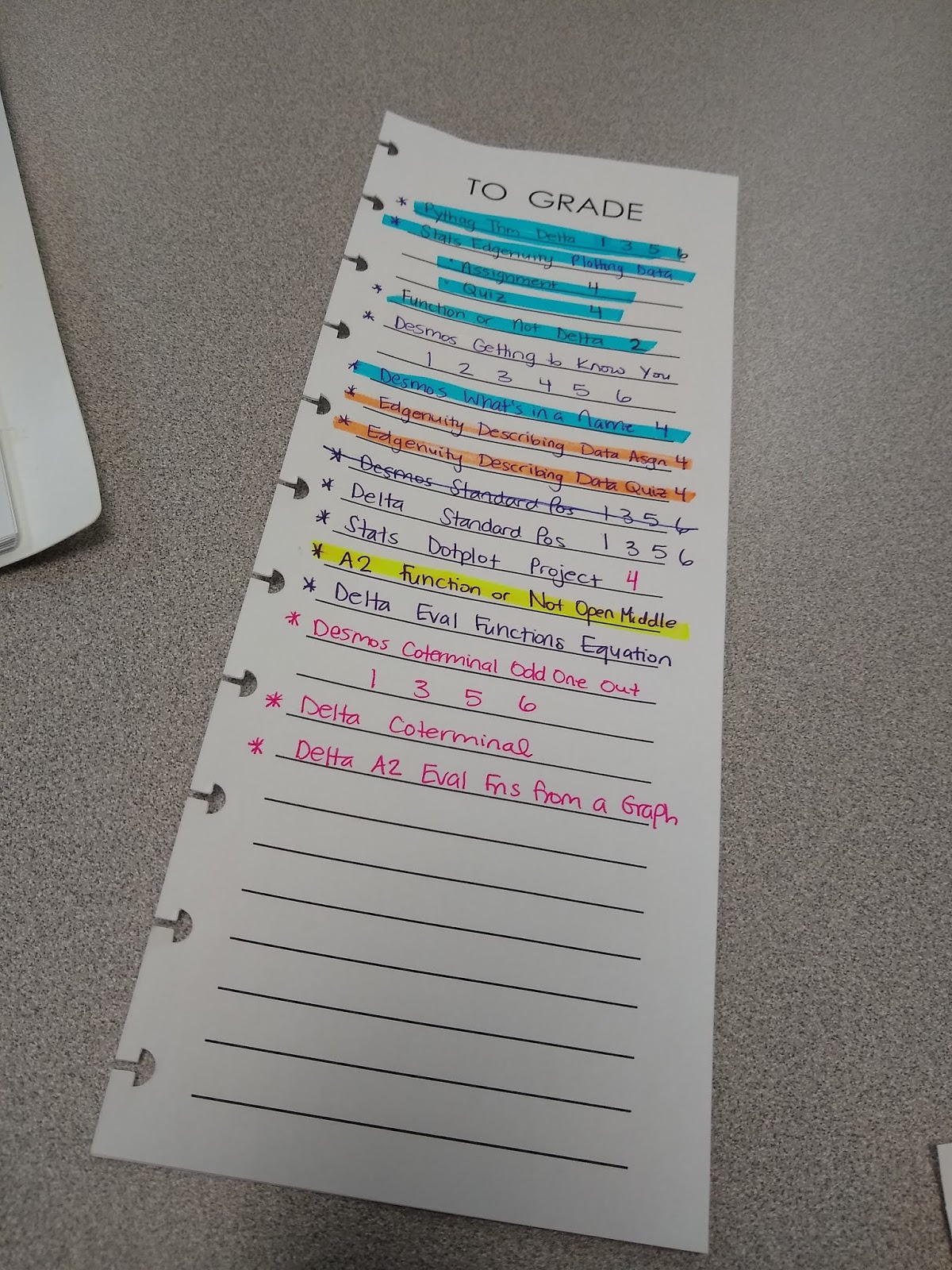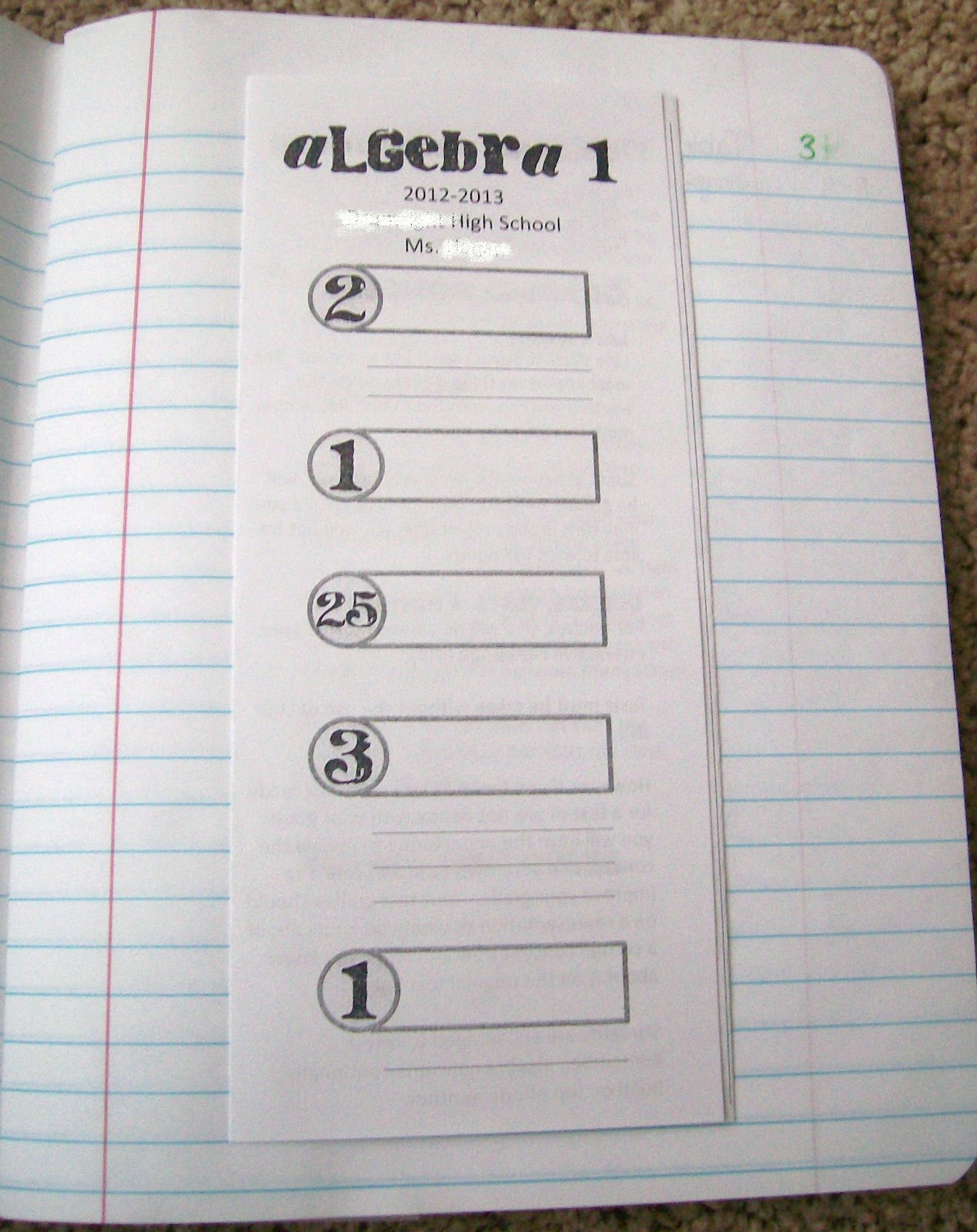Unit Reflection Sheet
One of the new strategies I’ve implemented this year is a unit reflection sheet. So I thought that as the first semester is wrapping up, I should reflect on how this unit reflection sheet is going.
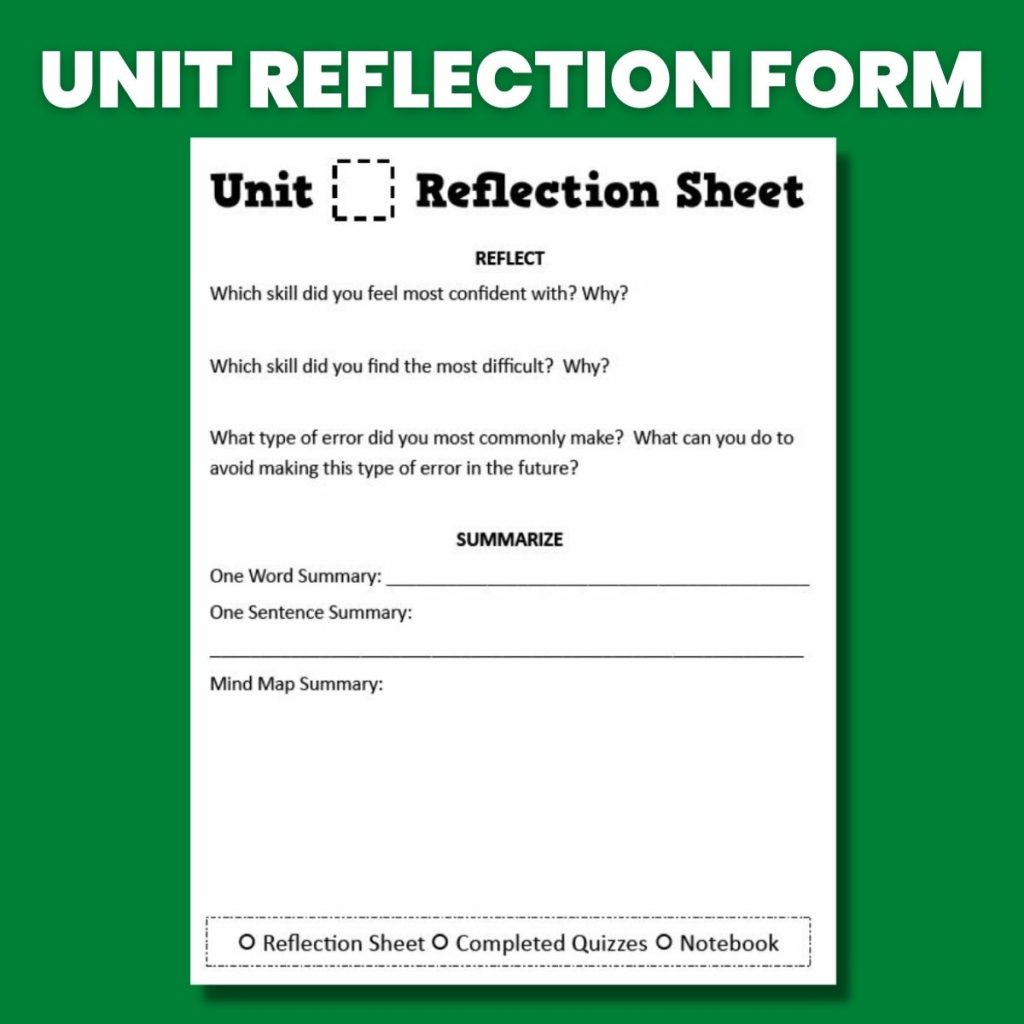
I’ve still got a few more lessons to teach and semester tests to write/give/grade. You might consider this blog post to be an exercise in productive procrastination…
At the end of each unit when students have demonstrated mastery on all of that unit’s quizzes, students fill out this reflection sheet, staple their graded quizzes to it, and turn it in with their completed notebooks.
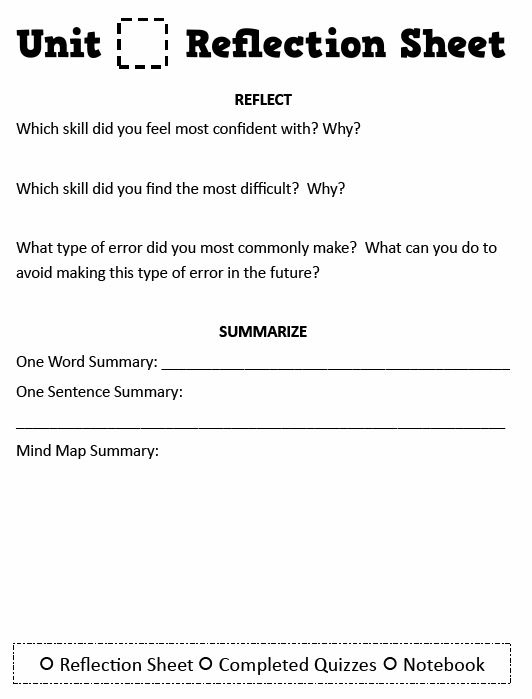
I ask my students to reflect on each unit. I, on the other hand, am going to reflect on my first semester of using reflection sheets.
Here are a few of the lessons I have learned.
Not putting a space for students to write their name on this sheet was a huge mistake.
And, apparently putting a box between “Unit” and “Reflection” is not a big enough clue to students that they should write the unit number in the box…
It’s been interesting to read the students “Why?” answers for which skill they are most confident with and which skill they found most difficult. Some students, of course, write things like “#2 because it’s easy” or “#5 because it’s hard.” Other students have actually taken the time to reflect on what made a specific skill easy or hard for them.
Either way, I’m excited that when I had back the packets at the end of the year to review for the end-of-instruction exam that students will automatically have a list of which skill they need to work on the most in each unit to prepare. If I choose to do this again, I will be more adamant about students explaining why something was easy/hard.
I like that students have to go back and look at their errors and formulate a plan for avoiding those errors in the future. Each reflection sheet is sort of a note to themselves to read/act on in the future.
I had big hopes for the summary section, but it hasn’t worked out exactly as I’d anticipated. For the one word summary, I had meant for students to choose one math word that summed up the unit. But, a lot of my students are picking words that describe how they feel about the unit such as “challenging.” Or, they’re like my stats students who summarize our box plot unit as “boxy.”
For the one sentence summary, I’m realizing that many of my students don’t know how to write a sentence. One word is not a sentence! These sentences are almost always their opinion of the unit. I guess I’m still getting feedback about what they feel, so it’s not what I was intending but it’s also not useless.
Lastly, students have to do a mind map summary. Mind map. Concept map. Bubble map. Web. Whatever you want to call it. I had this vision that students would comb through their notes and put a lot of thought into this. Ummm…no. They copy the titles of a few units into bubbles and call it good. A few students have been making a number line of sorts and ranking the skills from easy to hard. Basically, I’ve been letting students turn in their reflection sheets if they have something written there.
I need to do a better job of holding kids accountable for doing things the way I want them to.
At the bottom of the form, there’s a place for me to mark off if they submitted their reflection sheet, completed quizzes, and notebook for grading. I keep the reflection sheet/quizzes in a filing cabinet, and I’ll pass them back at the end of the year for them to review. I’m hoping this makes review go much smoother.
Free Download of Unit Reflection Sheet
Unit Reflection Sheet (PDF) (1057 downloads )
Unit Reflection Sheet (Editable Publisher File ZIP) (871 downloads )
More Free Printable Classroom Forms
- KWL Chart Graphic Organizer Template
- 2022-2023 Free Printable Lesson Plan Book
- Free Printable Grading List for Teachers
- Student Responsibility Sheets
- Seating Chart Preference Form
- Printable Tutoring Log
- Designing My Own Teacher Planner
- 25+ Free Exit Ticket Templates
- New Semester New Year Reflection Form
- Unit Reflection Sheet
- Parent Information Sheet
- Error Analysis Sheet

